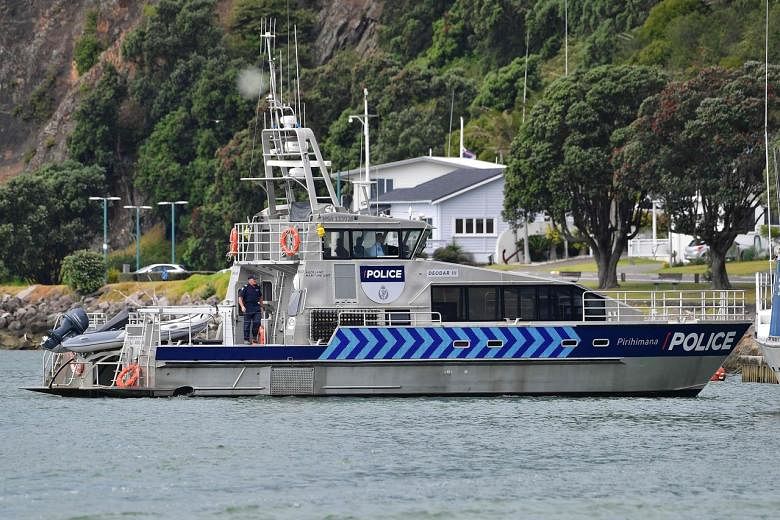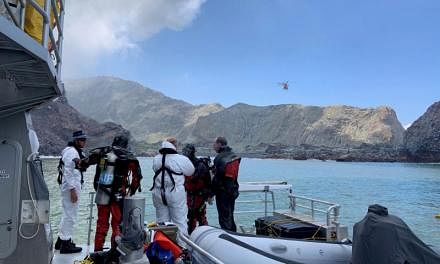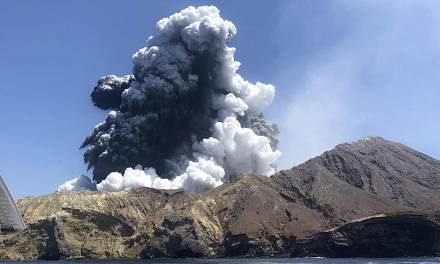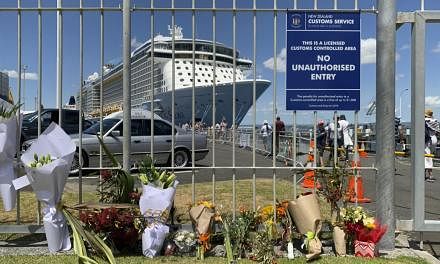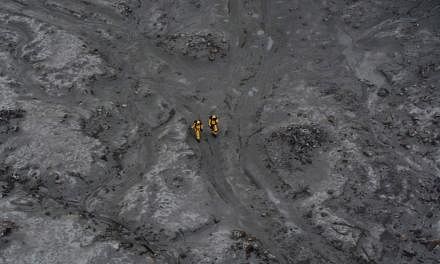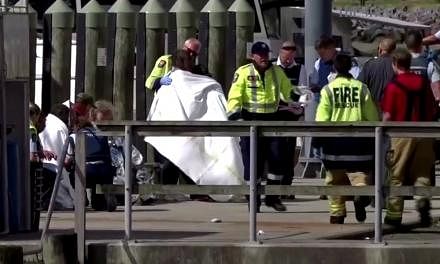WHAKATANE, NEW ZEALAND (REUTERS) - A New Zealand military team in gas masks and hazmat suits recovered six bodies on Friday (Dec 13) from the volcanic island that fatally erupted earlier this week, in a high risk operation watched by dozens of grieving family members waiting on the mainland.
An eight-person bomb disposal squad set off before dawn and spent four hours on White Island, which experts said could erupt again.
Six of the eight bodies on the island were successfully retrieved and taken to a naval patrol vessel for transfer to the mainland for disaster victim identification.
"Today was all about returning them to their loved ones," New Zealand Prime Minister Jacinda Ardern told a media conference in Whakatane, the mainland coastal town where about 100 family and local community members prayed and sang together.
"We know that reunion won't ease that sense of loss, of suffering because I don't think anything can but we felt an enormous sense of duty as New Zealanders to bring their loved ones home."
The team was unable to find and recover the remaining two bodies as the cumbersome protective equipment they needed to wear slowed down the tricky operation.
Police said dive teams deployed in the waters around the island, which is also known by its Maori name of Whakaari, had not found anything and would try again on Saturday.
"It's not over yet," Police Commissioner Mike Bush told reporters at a news conference.
Pictures showed pairs of military personnel wearing breathing apparatus scouring the lunar-like landscape as inflatable dinghies and a police launch waited offshore.
The volcano, a popular tourist destination for day-trippers, erupted on Monday, spewing ash and steam over the island.
Among the 47 people on the island at the time were Australian, German, Chinese, British and Malaysian tourists.
The official death toll stands at eight as the bodies on the island have been classified as missing until they are formally identified.
More than two dozen more people are in hospitals across New Zealand and Australia, most with severe burn injuries.
Australian Foreign Minister Marise Payne said 11 injured Australians have been transferred from overloaded burns units in New Zealand, with one more to be repatriated in the "coming days".
Dr Peter Haertsch, who is in charge of the burns unit caring for the returned Australians, said the victims have been exposed to fast-moving clouds of very hot volcanic gas and pumice and ash.
"They have suffered severe contact skin burns with severe injuries due to inhalation of gas and ash, and we are looking at extensive and intensive care for these patients, some of whom are still in a life-threatening condition," Dr Haertsch said in an emailed statement.
Ms Payne said Australia was working with the United States and other countries to source some of the urgently needed 1.2 million square cms of skin, an amount that far exceeds annual donations in New Zealand and Australia.
Earlier, a blessing was held at sea with the victims' families before the mission was launched.
On the shoreline of the town of Whakatane on New Zealand's North Island, which lies some 50km west of the island, about 100 family and local community members prayed and sang together as they watched helicopters enter and leave the island.
Mr Boz Te Moana, 24 and Mr Michael Mika, 28, travelled from their homes higher up the Whakatane river to stand where the river meets the sea and support families gathered at the marae, a Maori community centre.
"Where we come from we don't leave anyone behind, no one gets left behind," Mr Te Moana said of his Maori community. "We all move as one."
Weather conditions, both at sea and on the island, were favourable for the recovery, police said, but the operation took longer than expected because of the extensive protective equipment the recovery team needed to wear.
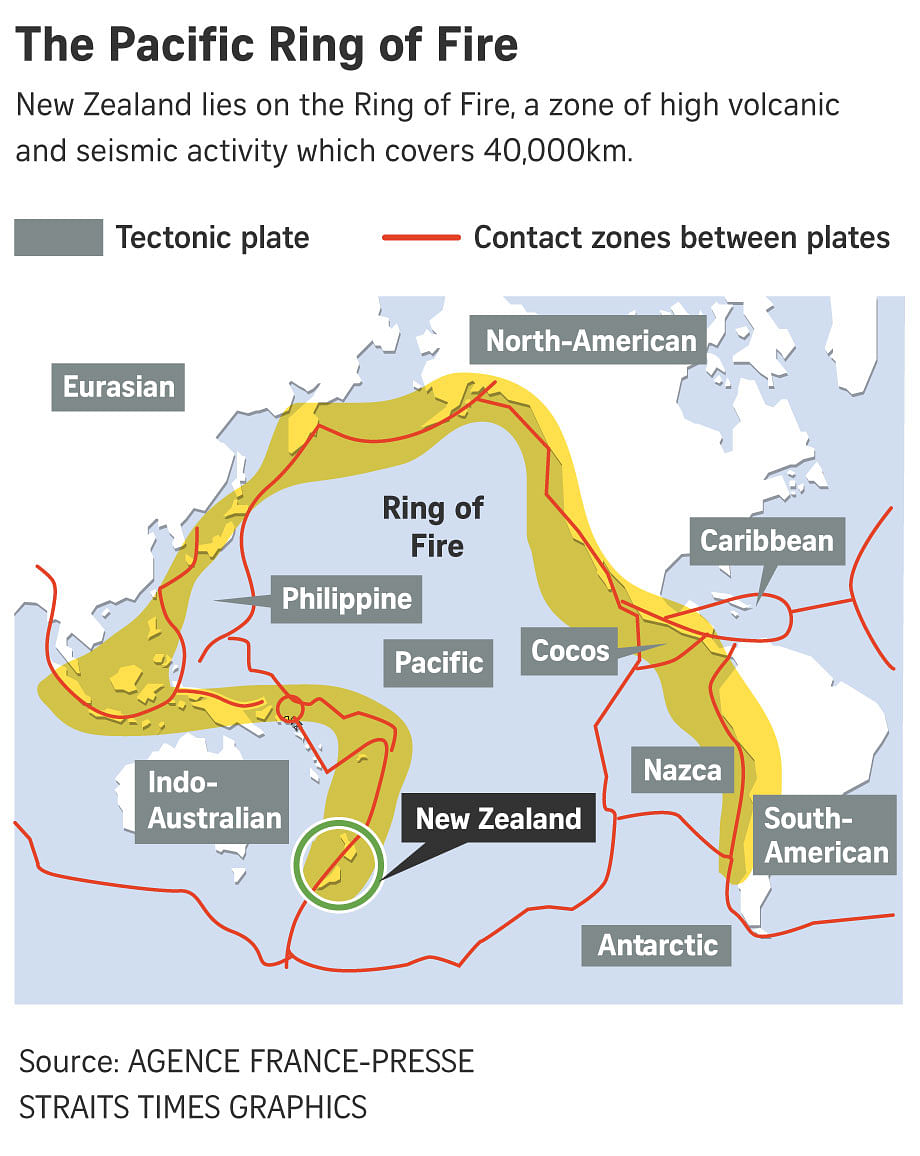
QUESTIONS OVER RISK
Police said earlier on Thursday that six bodies could be seen on White Island, also known by its Maori name of Whakaari, from the air and there would be "very limited" opportunity to search for the other two.
Authorities have faced growing pressure from families of victims and the wider local community to recover the bodies as soon as possible.
The operation has been repeatedly delayed due to the risk it posed to the those involved in the operation.
There has also been criticism of the fact that tourists were allowed on the island at all, given the risks of an active volcano.
Ms Ardern has announced an inquiry into the tragedy, which will address such broader questions.
"It's a very unpredictable volcano," she told ABC radio on Friday. "Having said that, that's not sufficient in terms of explanation as to whether or not the right checks and balances were in place."

